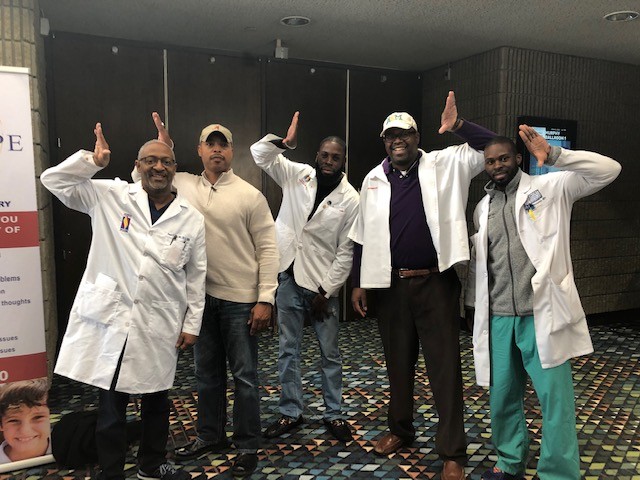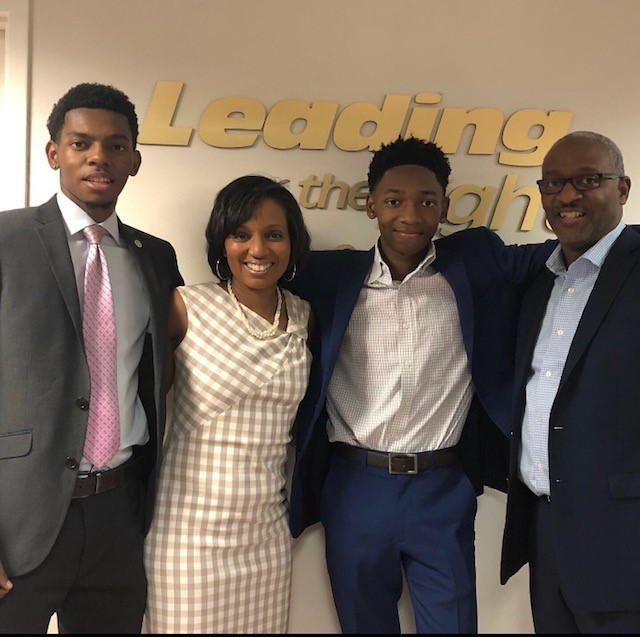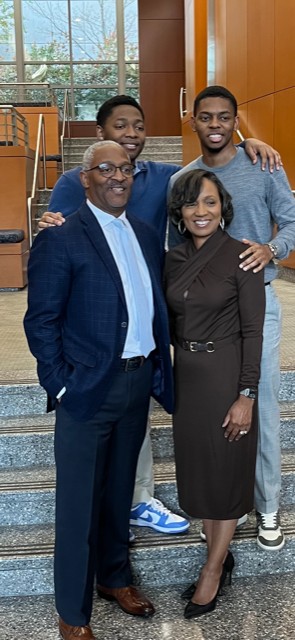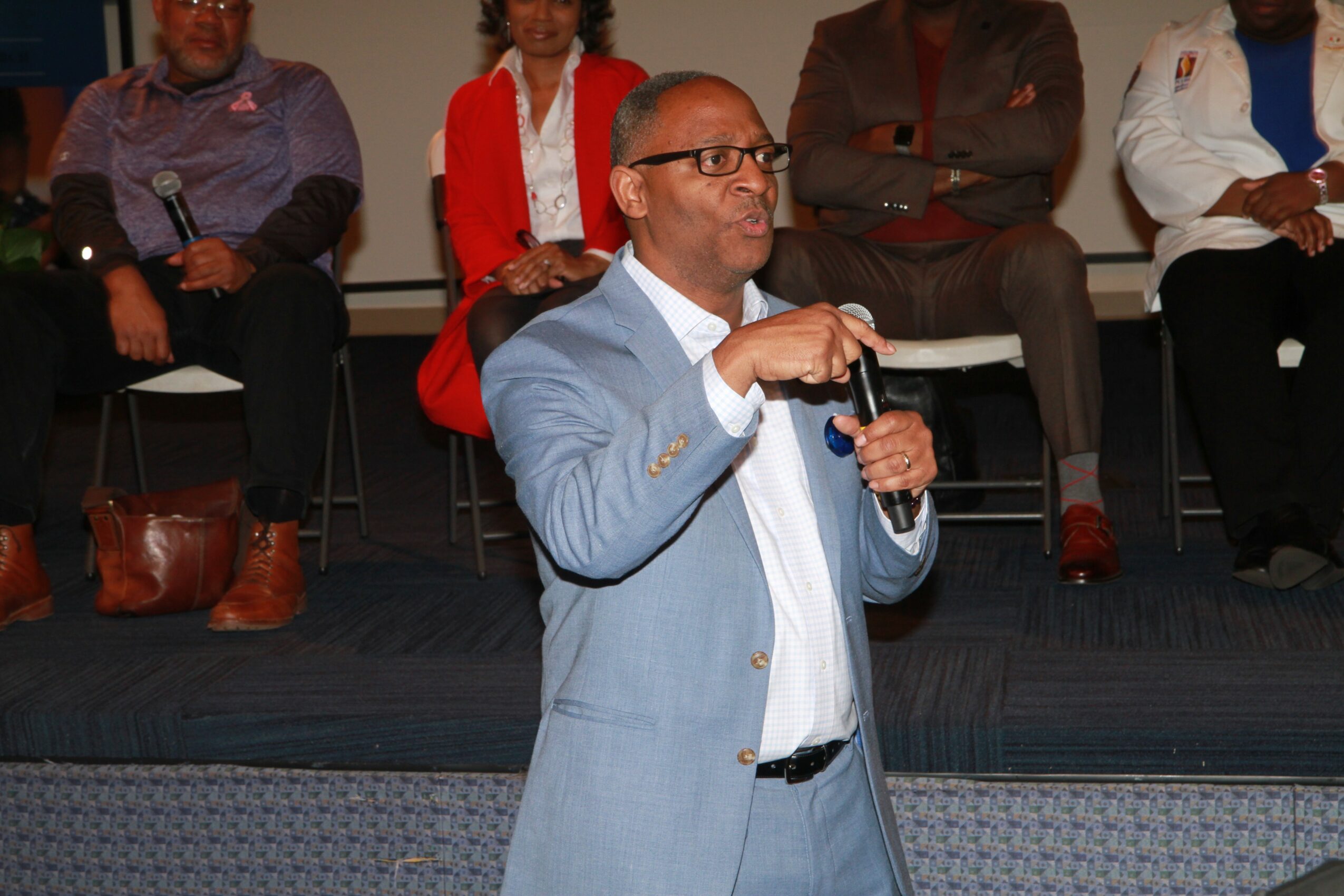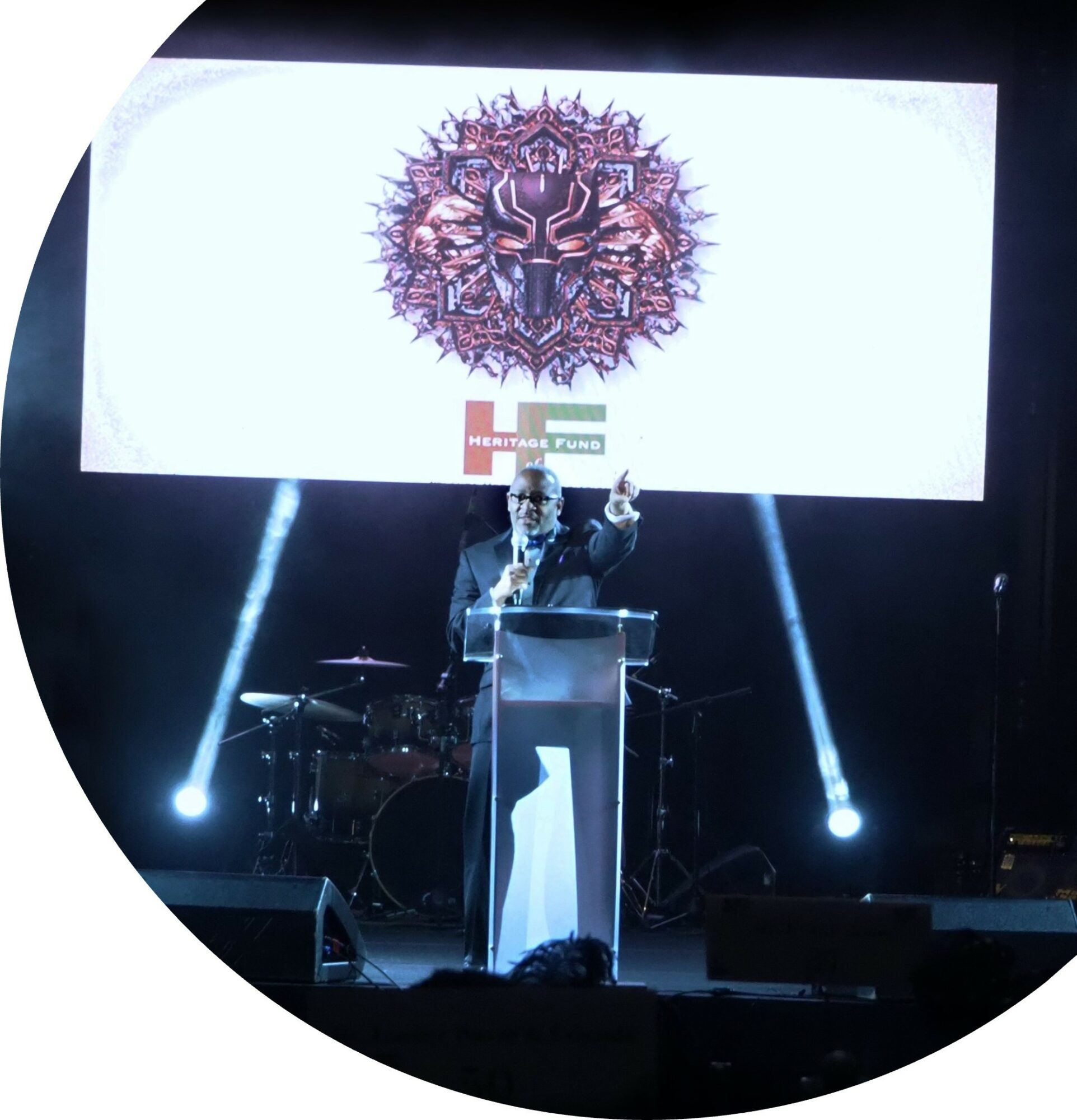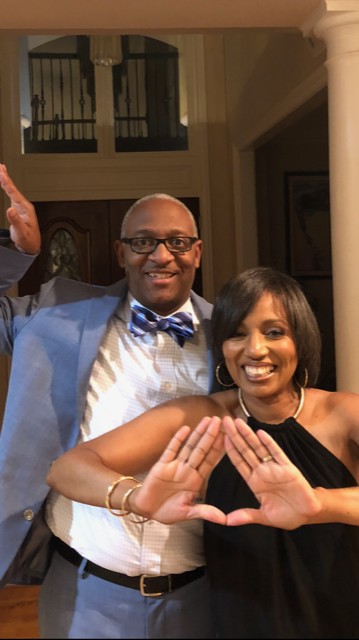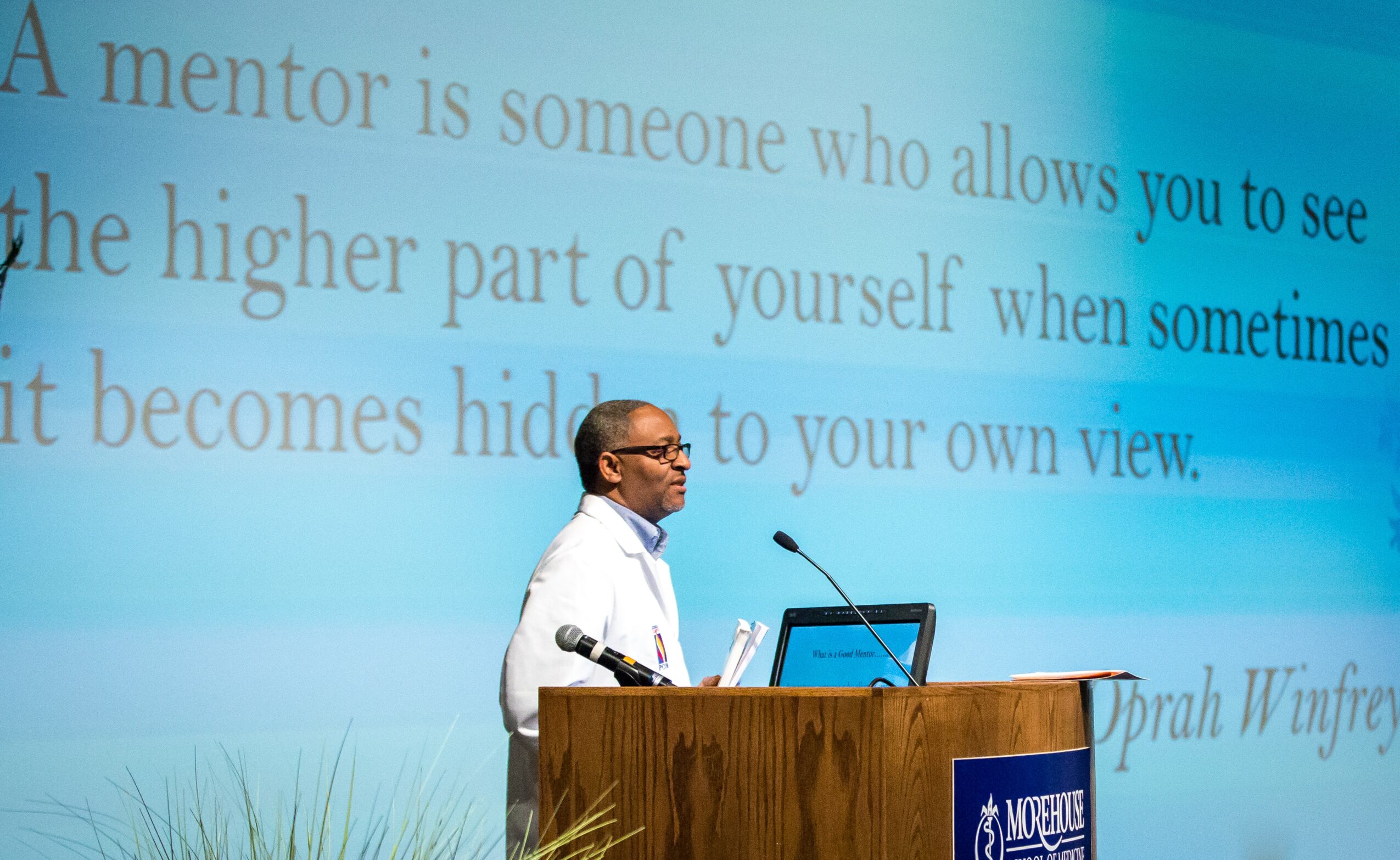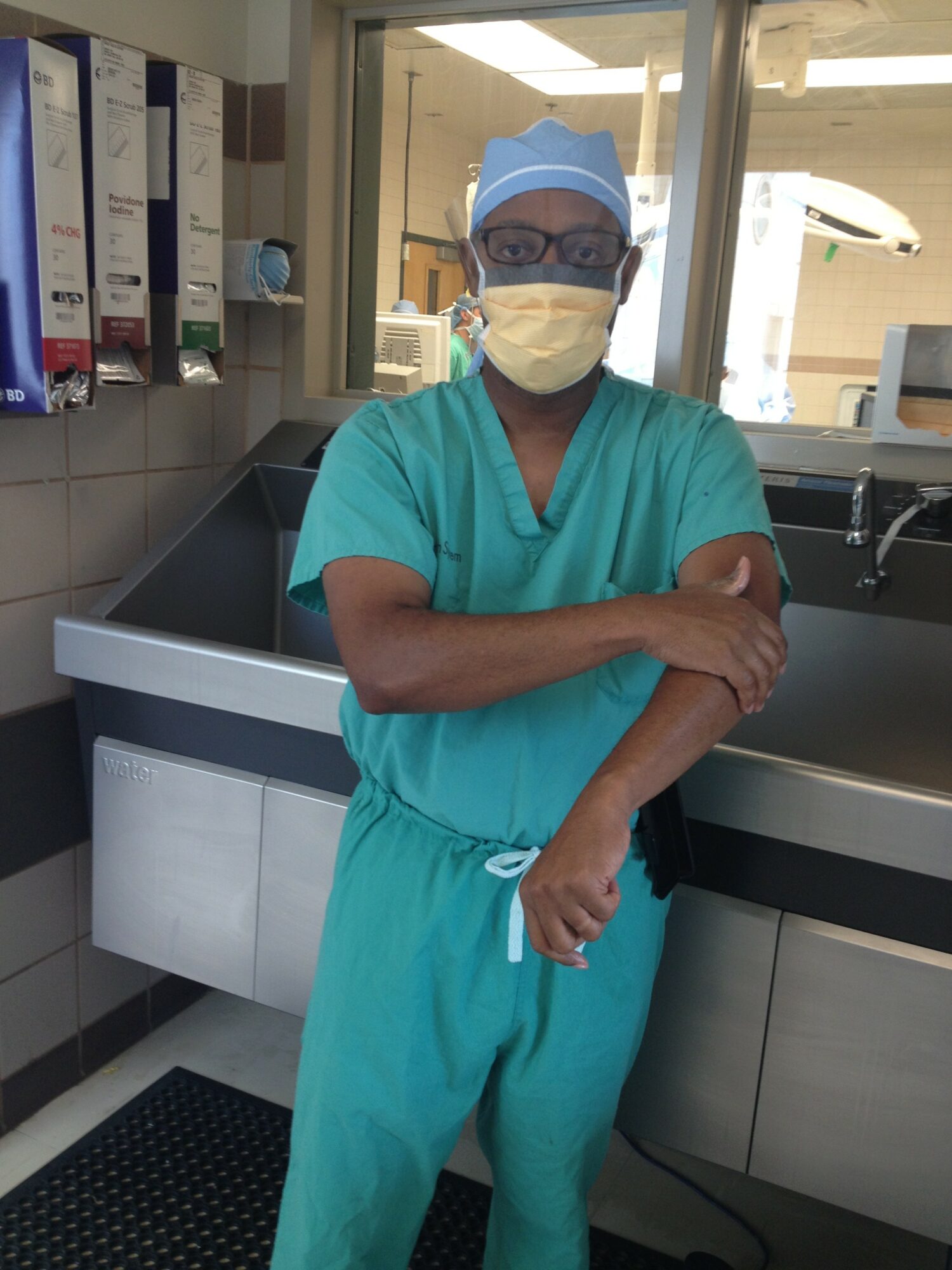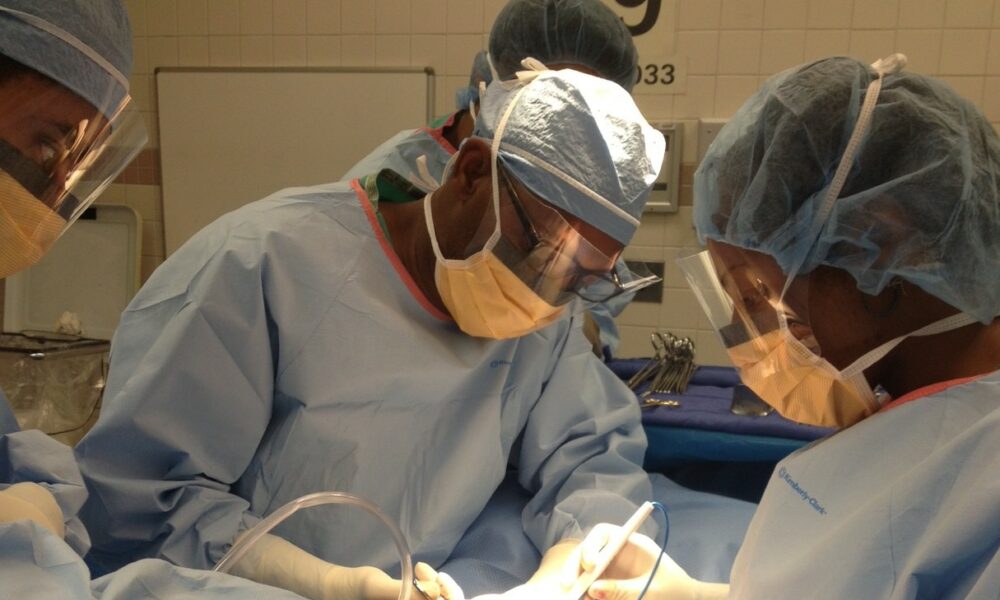

Today we’d like to introduce you to Frank Jones.
Hi Frank, we’re thrilled to have a chance to learn your story today. So, before we get into specifics, maybe you can briefly walk us through how you got to where you are today?
I was born in Augusta, Georgia to a mother and father that were both educators. My father was one of the first Black principals in Augusta. He eventually went on to receive his PHD in Community Medicine and worked at the University of Pittsburgh School of Medicine. My mom was a paraprofessional and taught reading to elementary school students. She attended Savannah State University for three years but never graduated because her mother could not afford to pay for the final year. My parents taught me and my three siblings the value of a good education. They also taught us that even more important than getting a good education was being a good person. It was the ideals, values, and sense of purpose that they instilled in us that inspired me to become who I am today. The first time I ever thought about becoming a doctor was when I was in the 4th grade. I was inspired by my brother Keith who is three years older than me. In his 7th-grade health class, Keith had a Black teacher named Mr. Jenkins. Mr. Jenkins wanted to be a doctor growing up, but he realized that was almost unheard of for a Black man from a small town in Georgia in the 60’s. Mr. Jenkins decided to become an elementary school Health teacher instead. One day, Keith came home from school, and he was so excited about what he had learned that day. He was reciting what sounded like the most interesting poem I had ever heard. There were some big words that I didn’t understand, but the rhythm of the words and the excitement I saw emanating from Keith got me excited! Keith explained to me that Mr. Jenkins had taught them the physiology of digestion by utilizing a rhythmic poem to get them interested. I was hooked. I ran upstairs to look at our World Book Encyclopedias. My mother purchased these encyclopedias for us, despite the fact that she could not afford them on her meager salary. Those encyclopedias proved to be an invaluable resource for me and my siblings. I opened the “D” encyclopedia to find “digestion,” and saw the pictures and read the text that accompanied them. When I saw this, my future was sealed….I knew right then that I wanted to be a doctor. I spent the next several years learning about the human body, mostly from reading those same encyclopedias. Fast forward three years to when I was in the 7th grade, my mom made sure that I was in Mr. Jenkins health class. And yes, I got a chance to learn those same poems about the digestion of fats, proteins, and carbohydrates. I learned this and so much more about the human body from this man who wanted to be a doctor but couldn’t. I can still remember those poems to this day, and that was 48 years ago.
My senior year in high school, my biology teacher Mrs. Willarena Williams convinced me to go to Morehouse College to pursue my undergraduate degree. I originally wanted to go to Clemson. She told me that Morehouse College would be a better fit for me. She also told me about a pre-freshman summer program at Morehouse for students that wanted to go to medical school. I applied and was accepted to Morehouse College and to the Pre-Freshman Health Careers Summer Program. This without question was one of the best and most impactful decisions that I have ever made. It was at this summer program that I met my lifelong friends and where my mentors took me under their wing and helped me navigate the arduous pathway to become a physician.
College was great; I did everything I wanted to do. I learned a lot, met a lot of people, pledged a fraternity, went to sporting events, partied, and I went on road trips up and down the East coast. My college life was amazing. If I had to do it over again, I wouldn’t change anything, but I would definitely reprioritize some things. My junior and my senior years, my social life got in the way of my academics, and my grades took a sudden decline. After a stellar academic record in my freshman and sophomore years, I graduated with a 2.8 science GPA, a 3.1 overall GPA, and a low score on the MCAT. These are not the grades nor the MCAT score you want if you are trying to get into medical school.
It should not surprise anyone to find out that my application to medical school was rejected the first year I applied. I also got rejected the second year applied. I was ready to give up on my dream of becoming a doctor. And then, the assistant director of admissions at Morehouse School of Medicine, Mrs. Claudia Cian, took me under her wing and motivated and encouraged me to keep pursuing my dream. The third time I applied, I was not accepted out right, but I was placed on the waiting list. Several months went by. I was still on the waiting list, and again I was ready to give up. I was excited for my roommate, who got accepted and was scheduled to start med school at Morehouse that following Monday, but I was still in despair… another rejection was on the horizon.
Out of the blue, that Friday afternoon, the Friday before medical school classes were set to start that Monday, I got a phone call from Mrs. Cian. I was away in Richmond, Virginia, attending another pre-med summer program. She told me that she had 1 seat left in the first-year med school class at MSM, and if I wanted it, I better have my ass there Monday morning. I couldn’t believe my ears. I packed my car that night and drove back to Atlanta, laughing and crying all the way!!!! I still was not sure that I was actually accepted into the class until I got to orientation that Monday morning and saw a seat with my name tag on it. I knew then that this was really happening.
Prior to getting accepted to Morehouse, I made a promise that if I ever got into medical school and became a doctor, I would spend the rest of my life trying to help those students who had stories similar to mine. I am proud to say that I have kept that promise. I started a mentoring program for underrepresented minority students called Pre-Med Solutions, and we have had a great deal of success getting Black and Brown students into medical school.
Today, as I look back over my career, I realize that I have overcome so many challenges. Each one of them has made me a better doctor, a better teacher, and a better person. Learning how to persevere enabled me to develop the tools and the competencies to go on to have a very successful and fulfilling career as a doctor and a medical educator.
I am slowly approaching the finish line in my professional career. I cannot ever see myself retiring, but I will definitely shift my focus in what I do. Family is everything to me. My family is so amazing and I want to spend more quality time with them. My wife, Dr. Jada Bussey-Jones, is a Professor of Medicine and a section chief at Emory University School of Medicine. She recently received an Endowed Chair at her institution, an accomplishment only a handful of Black women in the country have received. She is a nationally recognized expert in Health Equity, and D.E. and I. in the healthcare arena. My oldest son Kelvin is a practicing attorney, and my youngest son Jayden is a senior in college where he is an honor student, and soon to be to law student. My immediate family, my extended family, and my community have always inspired me to be my best, and they will continue to do so.
We all face challenges, but looking back would you describe it as a relatively smooth road?
It has been a very difficult road. I had to repeat several classes in college because I didn’t pass them. My medical school application was rejected twice, and I was put on the waiting list for the third time. I eventually got accepted. Fortunately, I made it through medical school without any problems. While I was doing my residency, I was let go twice. Not because of any academic reasons or behavioral issues but because of some situations that were out of my control. Still, I bounced back every time. Once I completed my residency and fellowship, I initially had trouble passing my boards. Once again, I recovered and persevered. Even as a practicing physician, after all my training was completed, I still had some bumps in the road in my career. Everybody has challenges, but it’s how you deal with them that matters. I am comfortable knowing that each step along the way, I gave it my all and was able to overcome each challenge. Oddly enough, when I talk to students and mentees, young and old, they want to hear more about the bad things that happened to me. Telling them how I overcame the bad things is much more motivating and instructive than telling them about the good things. Because of that, one of the more popular talks that I give is called “My Life…The Good, the Bad, and the Ugly.” Overcoming obstacles and challenges played a key role in who I am today.
As you know, we’re big fans of you and your work. For our readers who might not be as familiar what can you tell them about what you do?
I am a General Surgeon, a trauma surgeon, and a surgical critical care specialist. The first two years of my career, I was doing general surgery in a private practice. I got bored with this because I like to teach. I left that practice and went into Academic Medicine. I joined the faculty of Morehouse School of Medicine and did my clinical work at Grady Memorial Hospital. For the next 18 years, I was taking care of some of the sickest patients in the hospital. I got a chance to see and do everything. I was responsible for teaching Surgery residents, medical students, PA students, nurses, and other learners how to care for surgery patients. For my last two years at Grady, I was also the hernia specialist, and I repaired most of the complex abdominal wall hernias seen there. We did some cutting-edge work. Over the last seven years I narrowed my practice down to Wound Care and Medical Education. I also joined the faculty at Philadelphia College of Osteopathic Medicine-Ga campus, where I was involved with teaching osteopathic medical students.
Outside of my clinical work, I have always been very involved in mentoring, community service, and advocacy. I am also a social entrepreneur, and I have had several leadership roles. I started a mentoring program called Pre-Med Solutions which has been very successful in getting under-represented pre-med students into medical school. I was president of the Atlanta Medical Association, I am the director of medical volunteers for the Hosea Feed the Hungary Organization, and I am the president of the Morehouse School of Medicine National Alumni Association. In that capacity, I am also on the Board of Trustees for Morehouse School of Medicine. I also serve as the Vice-Chair of the Board for the Alzheimer’s Association of Georgia.
Over the past year, a great deal of my time has been devoted to being a social entrepreneur. One of the things I have done is to create a web-based directory of Black Doctors in Atlanta called My Black Doctor Directory. The goal of the directory is to give patients, and others access to a diverse group of Black doctors to help increase the health and health literacy of the Black community.
In my spare time, I am a consultant for several other medically related ventures.
My proudest professional accomplishment to date is to have played a role in helping dozens of Black and Brown students get accepted to medical school and to have been fortunate to teach and mentor thousands of medical students, residents, and young physicians.
Have you learned any interesting or important lessons due to the Covid-19 Crisis?
I learned that I am resilient and resourceful. At the time of the pandemic, I was serving as the president of the Atlanta Medical Association. My stated goals and platforms at the time were three M’s…to increase the Membership, to increase the Mentoring we were doing, and to increase the Money coming into the organization. Covid changed all of that. I had to pivot and figure out a way that we could help the community. I decided to turn all of our attention to educating the community. It was from this perspective that I created a series called Ask a Black Doctor. This was a very successful, highly acclaimed series that focused on educating the community on COVID-19 and other diseases and illnesses that affect the Black community. I learned how to collaborate with other community partners, and I learned the value of social media. We created several educational videos and webinars that were shared with our partners, and we also participated in Covid testing and educating the community about Covid vaccines.
I also learned that I was a good leader and that people trusted my leadership. I was able to motivate others to participate and to answer the call to action. I have received many compliments from friends and colleagues about my leadership during this very difficult time.
I learned how to multitask. This was something that I was terrible at before. I was busier during the Covid pandemic than at any other time period I could remember. Something about the urgency of the moment helped me to accomplish this.
The most important lesson I learned was the importance of family. We spent so much time together and we found out that we really liked each other. We always knew that we loved each other, but it was great to discover that we really liked each other too.
Contact Info:
- Facebook: https://www.facebook.com/frank.k.jones
- Linkedin: https://www.linkedin.com/in/frank-jones-m-d-f-a-c-s-mph-4364637/
